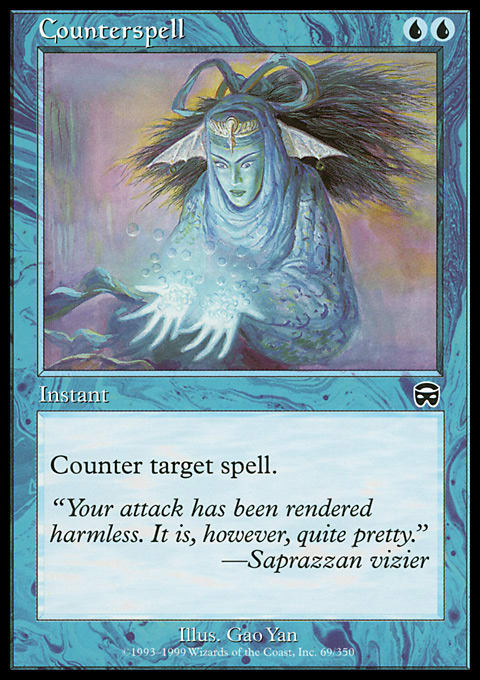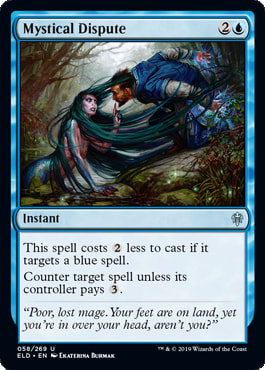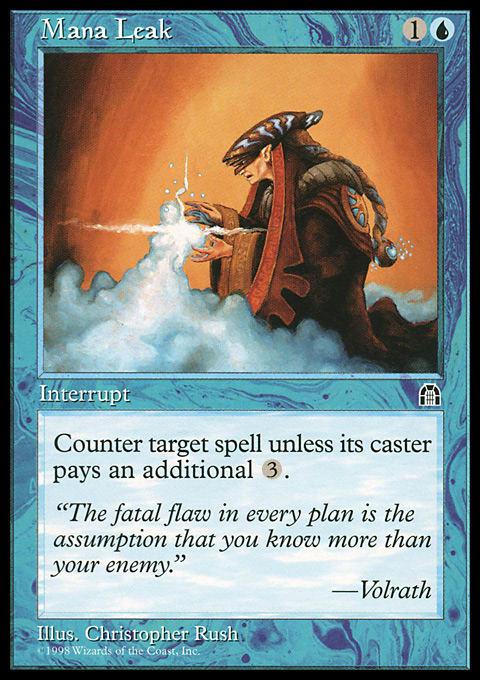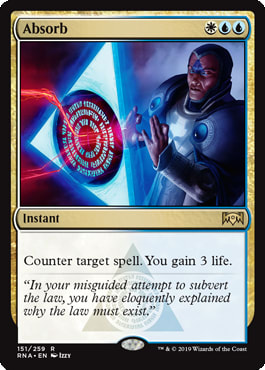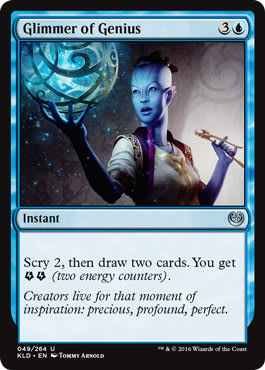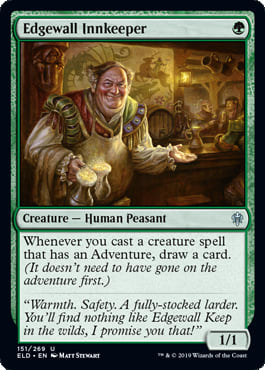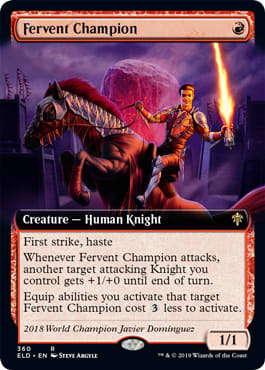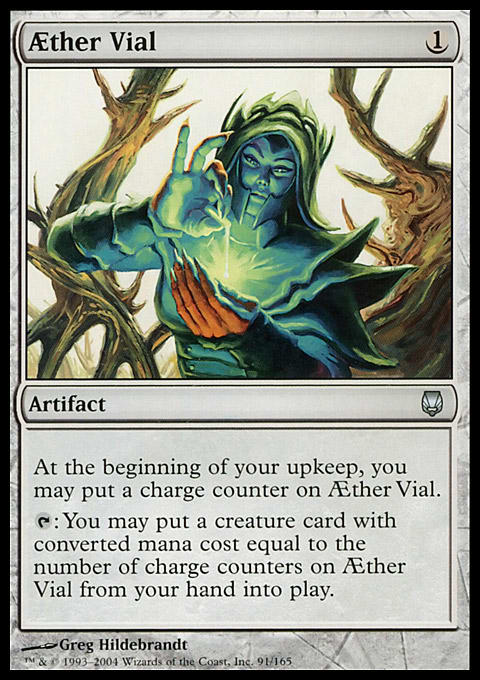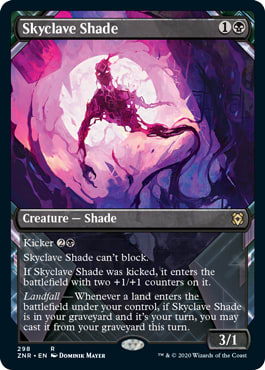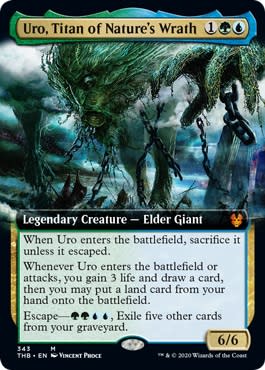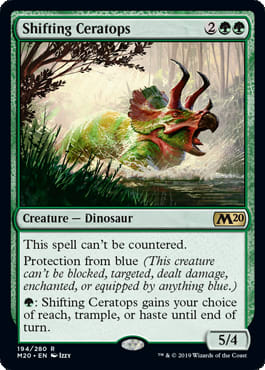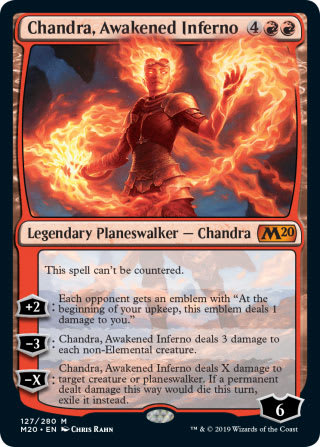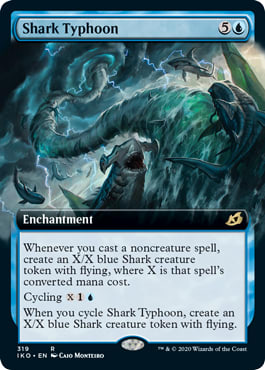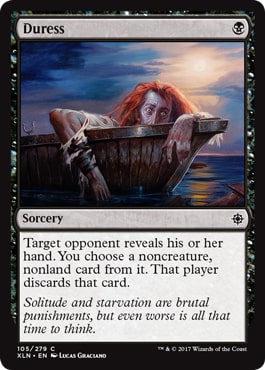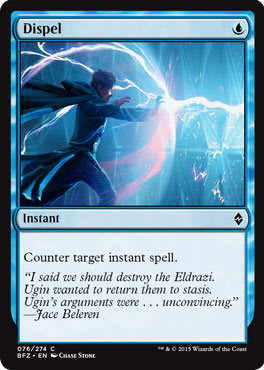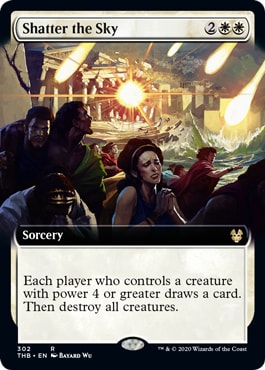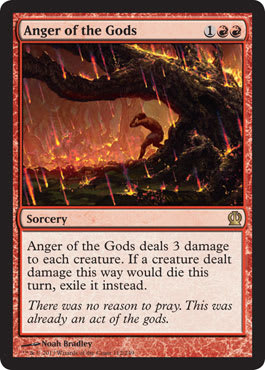There are few things in Magic more hated by newer or inexperienced players than counterspells.
If your opponent Doom Blades your creature, at least you controlled it for a turn or two, but if they Essence Scatter it, you never even got a chance to have it! Counterspells can create the feeling that you aren't even playing the game, which leads to frustration about the lack of involvement the player is having.
However, playing against counterspells (and control decks in general) can be one of the most enjoyable experiences in all of Magic... if you know how to do it correctly! The reality is that because your opponent has built their deck to react to you, you actually get to dictate the entire game rather than them. You get to examine your opponent's plan and force them to react to you, watching them writhe as they play their spells when they don't want to and make difficult choices.
Today I'm going to teach you how to do that!
Know What Is Available
Unlike most cards in Magic, counterspells are rarely seen before they are cast. When your opponent plays a creature or a planeswalker, it's on the board to see, read, and react to as you can. The same goes for lands, artifacts, and enchantments. Of course, you can "play around them" in the sense that you are prepared for your opponent to play them, but it's usually more about dealing with them after they have arrived.
On the other hand, counterspells are often a "silent killer" in that they don't get you until you've already committed to a course of action for the turn. Until that time they are hidden information for you to deduce based on how your opponent has played the game until this point - what cards they've played, what mana they have available, how they have played their turns. Knowledge of the cards in a format is always important, but it is critical when it comes down to playing around counterspells because you need to contextualize the context clues your opponent gives you.
Not every counterspell is, well, Counterspell. We never see efficient and unconditional counterspells anymore in Standard and for good reason. When a counterspell is too cheap and can deal with anything, it makes counterplay difficult because there are no holes to maneuver through. Instead, Standard often has a variety of cheaper "soft" counterspells with restrictions or limitations, and then clunky more expensive "hard" counterspells that can hit anything.
You absolutely must have a good knowledge of which counterspells are legal in the format you are playing to be able to properly play around them. This requires a little research, but will pay off in a big way because information is everything.
Only Give Them Bad Choices
Once you have this information, you get to use it against your opponent.
The worst thing you can do against a deck playing counterspells is play into them on curve. While you may not think of a control or counterspell deck as a "curve out" deck that wants to play a tight mana curve (like a Mono-Red Aggro deck), the reality is that just because their spells are reactive rather than proactive doesn't mean they don't want to curve out too. If you get your 1-drop Force Spiked, your 2-drop Mana Leaked, your 3-drop Absorbed, your 4-drop Cryptic Commanded, and allow them to play a Teferi, Hero of Dominaria on turn five and untap two lands to Dovin's Veto your spell... well you're probably losing that game.
The counterspell deck wants to play their spells whey they want to play them and your job is to not let them do that.
If your opponent's deck has Essence Scatter in it, maybe you can make a non-creature play on turn two instead? If your opponent has Quench in their deck, is there a way you can set up to play your important 3-drop on turn five? Finding spots you can double spell are also key to play around enough mana for only one counterspell.
"Test spells" are another big factor, as you can play something that is okay but not your best spell and force them to react. They may not want to Essence Scatter your turn seven Lotus Cobra, but if the other option is to take two damage from it a couple times when they're already at a single digit life total then there may not be another option. Judging when you want to play a test spell versus your big spell takes time and practice, but your major goal is to present enough of a threat to make them react without exposing your most powerful cards.
Realistically this concept is true of all their spells, not just their counterspells, as there are going to be turns they want to do something other than counter a spell. If we look at recent Standard formats, turn four was commonly a card draw turn for control decks with Glimmer of Genius or Chemister's Insight. The control deck would want to interact with you for the first few turns, then re-load on turn four with a card draw spell. These turns where your opponent has a great option available if you don't play into them are the turns where you need to play into them, while turns where your opponent's only real good play is reactive (either a counterspell or a kill spell) are turns you can pump the brakes a bit.
Of course, the best thing you can do is force the issue early, which severely limits their options and makes your choices much easier.
Get Under Them
There are very few counterspells that are functional at one mana, with the two mana ones often being conditional in various ways. If you can get on the board on the early turns ahead of these counterspells, you can put your opponent in a spot where they have no choice but to react on your time, not on theirs, which opens the door for even more spells to resolve earlier down the road. Decks that can get on the board early have a natural advantage against counterspell decks because of this, as the counterspell deck will have to spend time and mana to beat the board which will leave their shields down on crucial turns.
By getting on the board early and presenting threats before your opponent is ready to handle them, you get to force them into very difficult choices of threat assessment. As we said in the previous section, your goal is to put forward just enough of a threat for them to react while saving your true haymakers for later. This is often seen when the control deck has to play a Shatter the Sky or similar effect on turn four, and you untap and slam a planeswalker or other haymaker that is hard to remove and puts you right back in the driver's seat.
This is often why midrange decks struggle against control decks, as they can't apply enough early pressure to put the control deck off their plan. However, there is another path as well.
Understand The Endgame
One of the big reasons that midrange/ramp decks had a leg up on control decks over the last few formats was that while they couldn't get ahead in the early game, they were actually capable of winning the long game by simply overpowering the control decks resources. How? The three big ways are never running out of cards, presenting threats that the control deck has no answer to, or fighting fire with fire.
Hydroid Krasis and Uro, Titan of Nature's Wrath are the biggest example of being able to run the counterspell deck out of cards, as both provide a near limitless amount of resources. Your opponent can counterspell whatever they'd like, but unless they have their own broken resource engine they will eventually succumb by simply running out of answers. We can also see this sort of durability through cards like Skyclave Shade or other escape creatures like Ox of Agonas, who can keep providing an advantage turn after turn.
Another way is the most brute force: just play cards that say "can't be countered" on them! Threats like Shifting Ceratops and Chandra, Awakened Inferno are easy mode against counterspells, as they literally can't be touched by them. Of course, you need to be sure that your opponent doesn't have other answers as well. If you put all your eggs into a Chandra, Awakened Inferno basket, only to see your opponent play Elspeth Conquers Death and take it out, you're going to be in a world of trouble. Typically, these cards tend to go alongside a more proactive plan, so you can get ahead early and then slam the door with one of these.
The last path is to simply fight fire with fire and bring your own counterspells or disruption to the table. Cheap counterspells like Mystical Dispute or Dispel can allow you to set up a critical turn where you play your threat with backup and simply counterspell them right back when they try to counter it. Discard spells like Duress can also serve this purpose, although they can be less reliable if your opponent has multiple counterspells in hand because they don't need to cast the first one.
Whatever the case is, the point is to understand how the game is going to end. If you have some sort of inevitability or unstoppable endgame, or a way to push through your spells, you can afford to play more cautiously as you can compete in a late game. If you don't, you are going to need to be more aggressive and really focus on getting out ahead and staying ahead in the early game. Throw back any had that doesn't curve out well enough and make your plays with getting ahead in mind.
Leeroooooy Jenkins!
And of course, sometimes it just comes down to jamming.
Being able to play around counterspells and reactive elements is a skill, but knowing when you just need to go for it is also very important. While it may seem like they always have it, the truth is that they don't, and if you've spent any time playing a control deck there are certainly times where you are saying go with four lands in hand and praying your opponent doesn't play anything. There's going to be times where you can't apply any of these tactics successfully and your best chance to win is just jam your spell and hope it resolves. And sometimes you have enough good spells to cast in a row that you just keep barreling them until one resolves.
You can see this in playing around other reactive elements like mass removal as well. Sometimes you mulligan to five as an aggro deck and can't possibly hope to beat a sweeper, so you're best play is to put all of your cards on the table and be ready to scoop if they have it. Enough of the time they won't and you'll be able to steal some wins.
Again, this is all relative and not just an excuse to jam your spells and blame Jim if it goes wrong, but when circumstance dictates it can be correct.
Make Em Squirm!
Playing against counterspells, and control decks in general, can be a frustrating experience. However, it doesn't have to be!
Once you flip the script and understand that you are actually the one in control because you are dictating the action, you realize how much autonomy you have in each game. You have the most choices by far when you play against a control deck, and a skilled player should be able to dismantle an inexperienced control player even with limited tools.
Good luck!
















